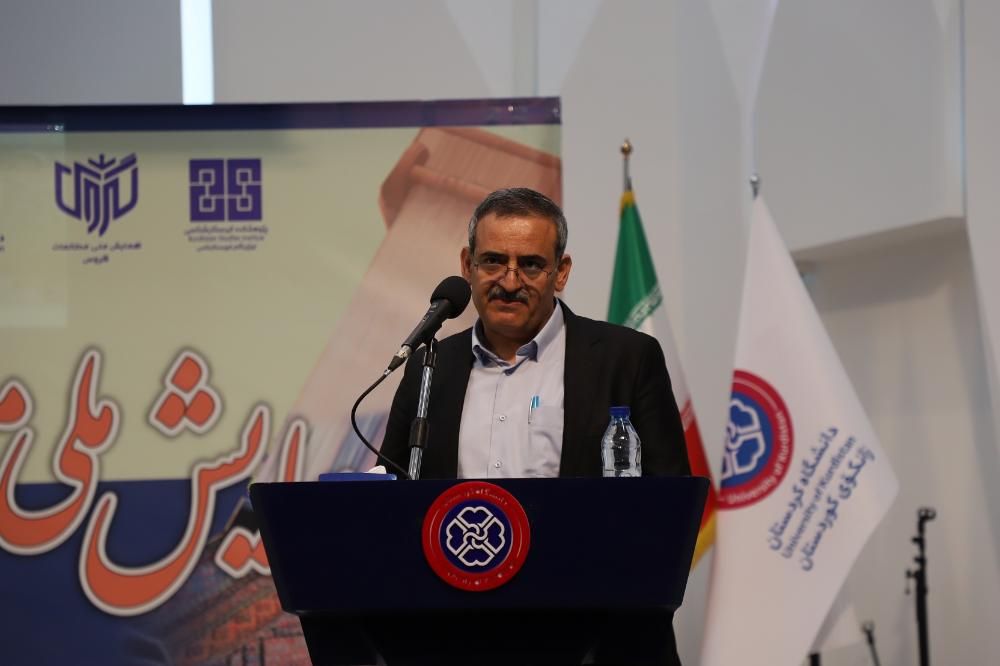At the National Conference on Garous Studies, the President of the University of Kurdistan emphasized the university's commitment to fulfilling its scientific and social role in the region's sustainable development.
Balanced Development of Garous Hinges on "Science-Practice" Link; University President and MP Emphasize Synergy

According to the Public Relations Office of the University of Kurdistan, at the opening ceremony of the National Conference on "Garous Studies," held on Wednesday, October 22, at the university, academic and executive officials stressed the need to link scientific capacities with development plans for regional progress.
University of Kurdistan: Committed to Provincial Sustainable Development
Dr. Adel Si-o-Se-Marde, President of the University of Kurdistan, stated that balanced development is not possible without a thorough understanding of cultural, social, and natural capacities. "The University of Kurdistan considers itself committed to contributing its scientific and cultural share to the sustainable development of the province," he said.
Referring to Bijar's historical position as the eastern gateway to Kurdistan, he added, "With its vast grain production capacity, this region saves the country approximately $150 million in foreign currency annually. The university feels a duty to repay its debt to this region by expanding academic programs at the Bijar faculty."
The university president announced two strategic initiatives in this regard: "The practical stages of compiling a comprehensive encyclopedia of Kurdistan studies began in early autumn, and the articles from this conference will be used to supplement it. Additionally, the university's Kurdistan Studies Center will soon be launched, and specialized research groups such as 'Garous Studies' will be added to it."
Weak Infrastructure: The Main Obstacle to Development
Following this, Alireza Zandian, the representative of the people of Bijar in the Islamic Consultative Assembly, identified weak rail, road, and communication infrastructure as the main obstacle to the region's development. "Although significant measures have been taken, they do not match the capacities of Bijar county," he said.
Emphasizing the need to downsize the government and strengthen the private sector, he added, "According to new regulations, the National Development Fund only supports private sector projects. The necessary groundwork must be laid for investors to enter Bijar, and as a member of the parliament's economic commission, I will use my full capacity to support the province's development plans."
The conference, featuring approximately 30 scientific papers in seven specialized panels, has provided a platform for researchers and experts in the fields of history, geography, art, and sustainable development to convene.


















